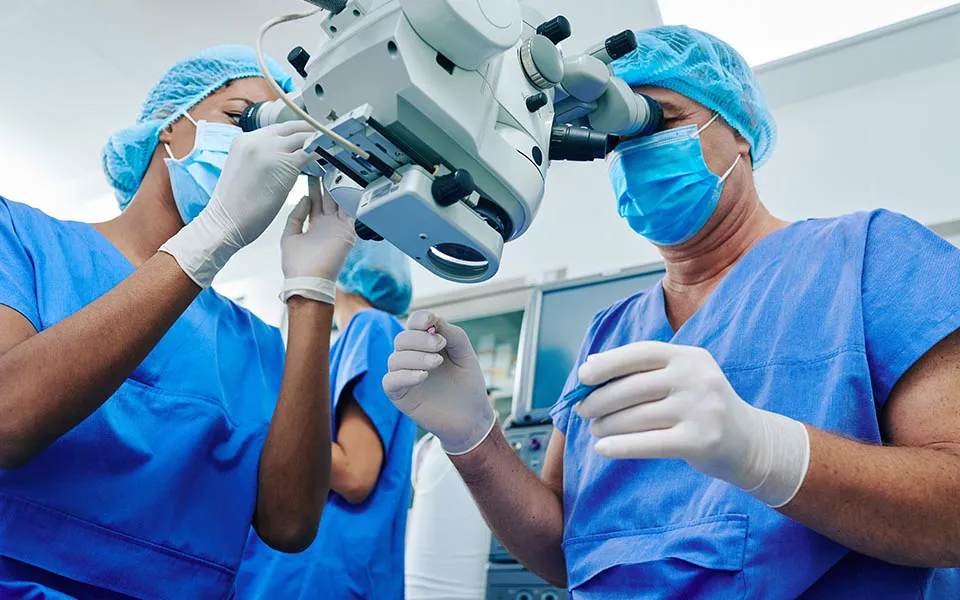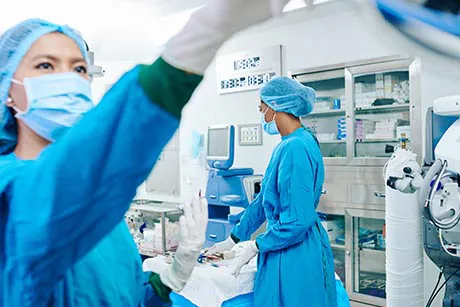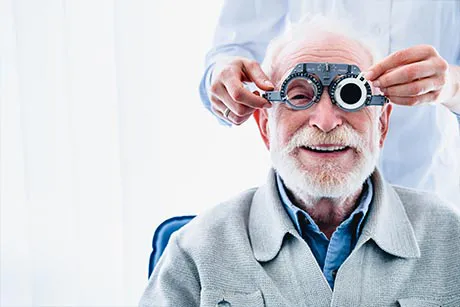Eye surgery, also referred to as ophthalmic surgery, is a medical procedure aimed at rectifying vision impairments or mending eye ailments. At Safe Medical Travel, your safety is our highest priority. We are dedicated to ensuring that both your eye surgery and the medical professionals performing the procedure meet the highest standards of safety and care.

Several kinds of eye surgery are offered, including:
- LASIK: This laser eye surgery corrects nearsightedness, farsightedness, and astigmatism by reshaping the cornea with a laser, improving how your eye focuses light.
- Cataract Surgery: This procedure replaces the cloudy lens of your eye with an artificial lens, typically recommended for individuals with cataracts (cloudy areas on the lens causing vision problems).
- Glaucoma Surgery: Glaucoma encompasses various eye conditions that can damage the optic nerve, leading to vision loss. Surgery aims to reduce pressure inside the eye to prevent further optic nerve damage.
Safe Medical Travel recognises the seriousness of eye surgery, and we are here to assist you through the entire process. We ensure that you have a relaxing, worry free experience by guiding you through each part of your treatment plan, as well as offering detailed explanations of procedures and answering any questions that may arise during the process. Our team of skilled surgeons and eye specialists will collaborate with you to develop a personalized treatment plan tailored to your individual requirements and objectives.


Eye surgery can offer significant improvements, including:
- Enhanced Vision: Improved visual acuity and overall vision quality.
- Better Eye Health: Treatment and prevention of further eye damage.
- Minimally Invasive Options: Many procedures are minimally invasive with short recovery periods.
Who is a Candidate for Eye Surgery?
Eye surgery is often recommended when vision problems or eye conditions aren't adequately corrected by glasses or contacts. Realistic expectations are key, as not everyone is a suitable candidate. At Safe Medical Travel, our experts will evaluate your vision and eye health to determine your candidacy. Consulting with a qualified and experienced ophthalmologist is essential.
Potential Risks and Complications
Like any surgery, eye surgery has potential risks, including:
- Bleeding
- Infection
- Swelling and redness
- Dry eye
- Night vision difficulties
Discuss these risks with your surgeon. At Safe Medical Travel, patient safety is paramount, and we'll fully inform you of potential risks and how we minimize them.
Recovery and Follow-Up
Recovery time varies depending on the procedure. Some surgeries have short recoveries (a few days for LASIK), while others take longer (weeks for cataract surgery). Follow your surgeon's instructions for post-operative care. At Safe Medical Travel, we provide ongoing support and resources during your recovery to ensure the best possible results.
What is cataract surgery, and how is it done?
Cataract surgery removes the cloudy lens and replaces it with an artificial lens (IOL). The surgeon makes a small incision and uses ultrasound to break up and remove the cloudy lens, then inserts the IOL.
What is LASIK, and how does it work?
LASIK reshapes the cornea using a laser to correct refractive errors (nearsightedness, farsightedness, astigmatism). The laser removes a small amount of corneal tissue to improve light focusing.
What is a corneal transplant, and why is it needed?
A corneal transplant (keratoplasty) replaces a damaged cornea with a healthy donor cornea. It's performed when the cornea is too damaged to be repaired otherwise and causes severe vision loss.
What is glaucoma surgery, and how is it performed?
Glaucoma surgery lowers intraocular pressure to prevent optic nerve damage. Trabeculectomy, a common procedure, creates a new drainage channel for fluid outflow.
How do I prepare for eye surgery and how long is eye surgery recovery?
Follow your surgeon's instructions on fasting, medications, and other preparations. You may need to stop certain medications. Arrange transportation and have someone stay with you for the first 24 hours after surgery.
Recovery varies by procedure. LASIK recovery can be a few days, while cataract surgery may take weeks. Follow your surgeon's post-operative care instructions and attend follow-up appointments.
